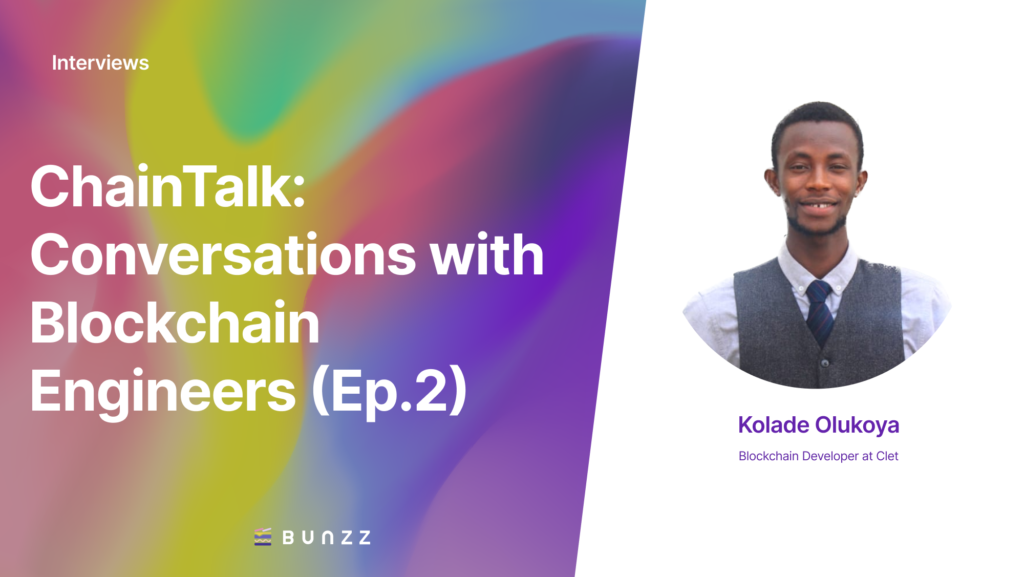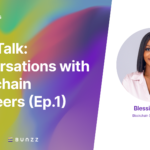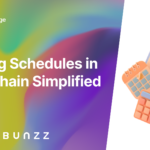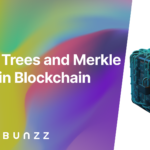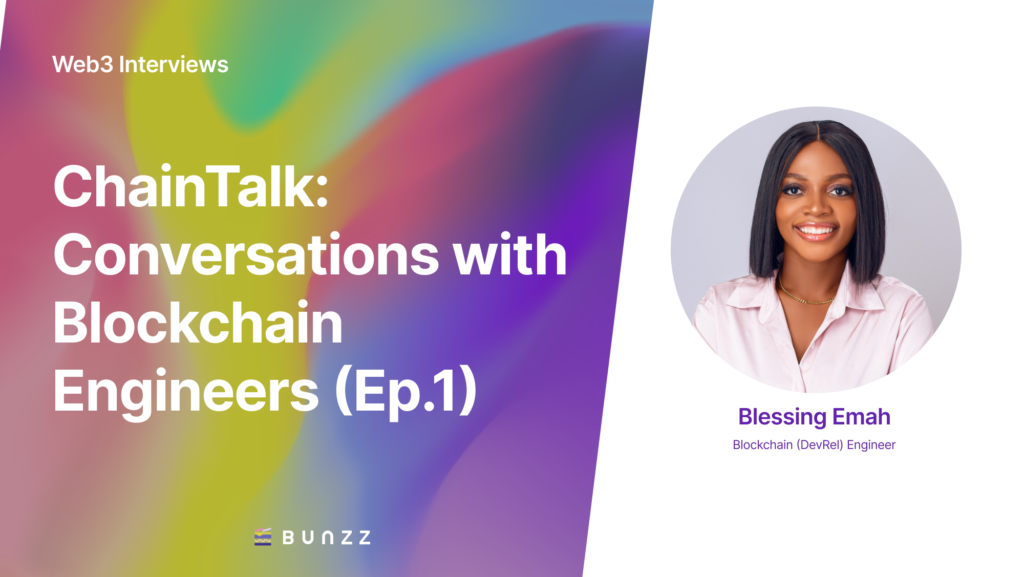Olukoya Daniel Kolade is an enthusiastic blockchain developer with three years of experience in the tech industry. His career began as a web developer, but his curiosity about cryptocurrency prompted him to venture into blockchain development. He noticed that many individuals had only a surface-level understanding of cryptocurrency and desired to gain deeper insights into its inner workings, market dynamics, and overall influence. This curiosity ignited his interest in blockchain technology, which he found to be a powerful solution to many challenges.
Olukoya has worked with Chatbuck, an Indian chat messaging company, for the past six months. He recently joined Clet as a blockchain developer for Clet Name Service. Clet specializes in helping individuals map their cryptocurrency wallet addresses to user-friendly names, revolutionizing the field. Olukoya found Clet’s innovative approach highly compelling, motivating his decision to become part of their team.
In this episode of ChainTalk, we discussed with Kolade, and he shared valuable insights and provided a unique perspective based on his experience as a blockchain developer.
- Tell me about your journey in blockchain development and what excites you in the space.
My journey as a blockchain developer began fueled by an insatiable curiosity. Dissatisfied with a superficial understanding of cryptocurrency, I embarked on a deep exploration of the Web3 realm. Immersing myself in articles, videos, and a comprehensive blockchain fundamentals course, I laid a sturdy foundation for my future endeavors. Building upon this knowledge, I sought practical experience, which led me to secure an internship and eventually a fulfilling full-time position as a blockchain developer. Though the path has presented challenges, each obstacle has been met with determination and has contributed to a rewarding and transformative journey.
- What is your favorite/preferred blockchain platform, and why?
Ethereum is my favorite blockchain due to its pioneering introduction of smart contracts, revolutionizing blockchain usage. It boasts the largest community of developers and enables the creation of DApps. Ethereum’s gas fee payment system adds intrinsic value to coins. It also exhibits compatibility with various blockchains, including its side chain Polygon, addressing scalability concerns and reducing gas fees. Overall, Ethereum’s impact and versatility make it a standout player in the blockchain space.
- What are the most difficult challenges you have faced as a blockchain engineer while developing DApps, and how you overcome them?
One of the prominent challenges I encounter as a blockchain developer is the limited availability of assistance during development. As a relatively new technology, blockchain lacks extensive support systems compared to more established domains like Node.js. While there are communities and platforms for seeking help, they are still in their nascent stages and may not offer the same level of resources or community size.
Furthermore, the rapid growth of the blockchain space introduces constant updates, including new tools, languages, libraries, and APIs. While documentation exists, it may not always suffice when facing complex development issues. Finding assistance can be challenging since similar problems may not have been encountered by others or may not be readily addressed online. This is especially true for those who actively explore and experiment with new technologies.
It is crucial to emphasize that continuous learning and staying updated are essential requirements for blockchain developers to remain at the forefront of their field.
- Could you explain the concept of blockchain name service and its significance in the blockchain ecosystem?
Having a crypto wallet like Metamask typically means having a wallet address composed of complex alphanumeric strings. Remembering and accurately inputting these addresses is crucial to avoid permanent loss of funds. However, a blockchain name service such as Clet offers a solution. It enables users to associate their wallet addresses with human-readable names, eliminating the need to constantly deal with cumbersome alphanumeric strings. For example, my wallet address can be mapped to my name, “Kolade.” Moreover, Clet supports unique mappings for each wallet, considering the native blockchain of the address. For instance, I can have “kolade.btc” for my Bitcoin wallet and “kolade.eth” for my Ethereum wallet. Clet currently provides support for approximately 16 different blockchains.
- Can you share any use cases or success stories where the blockchain name service has enabled new applications or services?
Yes, at Clet, we offer a range of interesting use cases worth mentioning. I will start with the Clet Extension, a browser extension that allows resolving Clet names, as well as ENS and Unstoppable Domain Names. By resolving the name, the extension retrieves the corresponding wallet address. It is also compatible with Etherscan, following the conventions allowed by Clet, such as using a colon (:) before and after the name (e.g., :bob.btc:).
In addition, Clet provides the convenience of resolving Clet names directly on Twitter and Discord, following specific conventions.
Excitingly, Clet has recently partnered with Ruby Exchange, enabling users of the exchange to utilize Clet names and effortlessly resolve them while on the platform. This collaboration eliminates the need for repetitive copying and pasting of wallet addresses, ensuring seamless transactions.
These innovative solutions from Clet enhance user experiences and simplify using Clet names across different platforms and devices.
- What blockchain use cases and solutions are people not building or implementing across NFTs, DeFi, said, etc, that need to be built?
In recent years, significant emphasis has been placed on developing decentralized finance solutions, such as crypto exchanges, payment gateways, and utility token creation. While these advancements are noteworthy, I strongly believe similar enthusiasm should be directed toward the real estate sector. Furthermore, I envision the application of blockchain technology in governance and nation-building efforts, particularly in areas like data protection, process streamlining, and combating fraud, waste, and abuse. These initiatives have the potential to foster trust, accountability, and overall improvement.
By creating blockchain applications for government entities, many of the challenges faced by our country can be effectively addressed. For instance, the electoral process could be streamlined, reducing the time required for voter registrations and other administrative tasks. Utilizing blockchain technology would not only save time but also enhance efficiency and ensure the integrity of the process, safeguarding it from interference or tampering.
